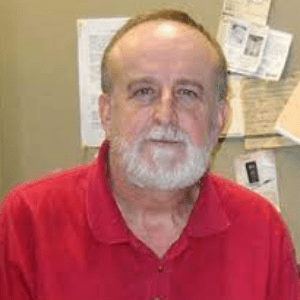Neural Impacts of Substance Abuse Conference
Home/ Scientific Sessions / Neural Impacts of Substance Abuse Conference
Neural Impacts of Substance Abuse
Neural impacts of substance Abuse explain the harmful impact of drugs and alcohol on the brain. When someone continually use addictive drugs, it changes the manner in which his or her brain operates. These changes could affect regions responsible for deciding, emotions, memories, and controlling oneself. For example, drugs can damage the brain’s reward system, making one find it hard to experience pleasures from normal activities. Eventually, the brain also becomes reliant on the drug in order to function, and this leads to addiction and cravings. Substance abuse can also decrease the size of areas of the brain, slow down mental processes, and increase the risk of mental illness such as depression or anxiety. Adolescents’ brains are also most susceptible, whose brains are still developing. These impacts will not always stop completely when drug use has stopped, but with treatment and time, the brain is able to heal to some extent. Knowing how the brain responds to drugs helps doctors develop better recovery and treatment plans.
Related Sessions
1.Alzheimers and Parkinsons Diseases
2.Neuroimmunology and Neurological Infections
3 – Cognitive Neuroscience and Psychology
4 – Neuroinformatics and Computational Neuroscience
5 – Neurological Disorders
6 – Neurobiology
7 – Molecular Neuroscience
8 – Pediatric Neurology
9 – Clinical Neurology
10 – Translational Neurology
11 – Neurogenetics
12 – Neurodegenerative Diseases
13 – Neuropsychiatry
14 – Neuroscience Research
15 – Neuropharmacology and Novel Drug Development
16 – Neurological Interventions and Surgery
17 – Artificial Intelligence in Neurology and Neurosurgery
18 – Neuro-ophthalmology and Auditory Neurology
19 – Aging and Neurology
20 – Brain Tumors and Neuro-Oncology
21 – Stroke Diagnosis and Management
22 – Epilepsy and Seizure Disorders
23 – Psychiatric and Behavioral Disorders
24 – Neurovascular Disorders
25 – Neurology and Systemic Disorders
26 – Neurodevelopmental Disorders
27 – Cognitive and Memory Disorders
28 – Neuroinflammation and Brain Disorders
29 – Neurological Rehabilitation
31 – Trauma and Neurocritical Care
33 – Cellular and Systems Neuroscience
35 – Advances in Neuroimaging Techniques
37 – Rare and Complex Brain Disorders
30 – Global Challenges and Public Health
32 – Neurotoxicology
34 – Behavioral Neuroscience and Social Neuroscience
36 – Addiction and Mental Health
Scientific Program
Keynote Speaker - Dr. Zhenhuan LIU (Oral Presentation - In-Person)
Nanhai Maternity and Children Hospital Affiliated to Guangzhou University of Chinese Medicine, China
Keynote Speaker - Dr. Magda Tsolaki - Oral Presentation (Virtual)
Emeritus Professor of Neurology, Aristotle Univesrsity of Thessaloniki, Makedonia, Greece, Chair of the Greek Federation of Alzheimer’s Disease
Keynote Speaker - Dr. Tatsuro Mutoh, MD, PhD, FAAN - Oral Presentation (In-Person)
Department of Neurology, Fujita Health University Hospital, Toyoake, Aichi, Japan
Scientific Program
Keynote Speaker - Dr. Zhenhuan LIU (Oral Presentation - In-Person)
Nanhai Maternity and Children Hospital Affiliated to Guangzhou University of Chinese Medicine, China
Keynote Speaker - Dr. Magda Tsolaki - Oral Presentation (Virtual)
Emeritus Professor of Neurology, Aristotle Univesrsity of Thessaloniki, Makedonia, Greece, Chair of the Greek Federation of Alzheimer’s Disease
Keynote Speaker - Dr. Tatsuro Mutoh, MD, PhD, FAAN - Oral Presentation (In-Person)
Department of Neurology, Fujita Health University Hospital, Toyoake, Aichi, Japan
Committee Members

Kenneth B Storey
Carleton University, Canada

Kindy Mark
University of South Florida, United

Thomas J Webster
Interstellar Therapeutics, United States
Tags




